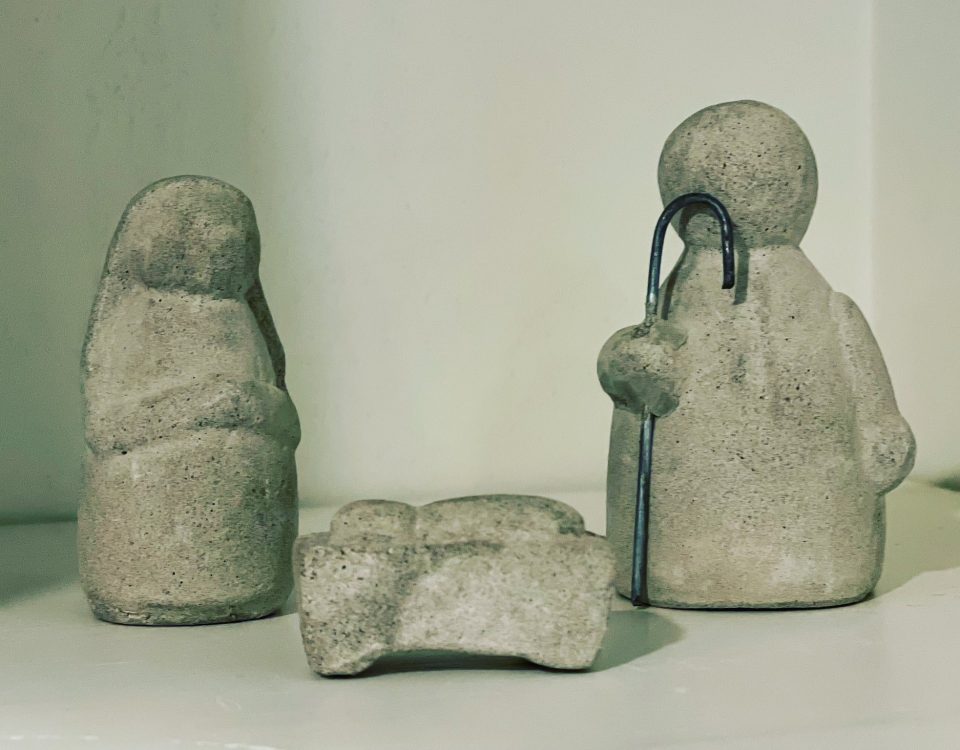Imprisoned by the Nazis, he didn’t have even a year left to live.
He was a preacher and a theologian, a teacher who dared to speak out. He was a Christian, a man of deep faith—a faith which, of course, got him into the trouble we was in. A believer, yet troubled, his letters from prison reveal a struggle to make sense of what had become of the Church, of Christianity, of belief in Jesus. His are haunting letters, really, from a man so clearly a disciple, rare in a wicked world.
Dietrich Bonhoeffer to his friend, 30 April 1944, wrote this: “What is bothering me so incessantly is the question what Christianity really is, or indeed who Christ really is, for us today.” The time when either theology or piety could make it all make sense for people was simply over, he thought; done too was any sort of morality of conscience. “We are moving,” he said, “towards a completely religion-less time; people as they are now simply cannot be religious any more. Even those who honestly describe themselves as ‘religious’ do not in the least act up to it,” he wrote.[1] Haunting words, as I said, from a Christian jailed for his Christianity. What is Christianity really? Who is Jesus really? “[P]eople…simply cannot be religious anymore,” he thought.
His disappointment is understandable. Few paid any attention to him when he first spoke out—although the Nazis were paying attention. Before the gray dark evil of the Third Reich, seeing so many Christians either go along with it or do nothing, Bonhoeffer’s bitter but accurate assessment was that the Church “was silent when she should have cried out because the blood of the innocent was crying aloud to heaven. She has failed,” he said, “to speak the right word in the right way and at the right time. She has not resisted to the uttermost the apostasy of faith, and she has brought upon herself the guilt of the godlessness of the masses.”[2] What is Christianity really? Who is Jesus really? Maybe Bonhoeffer went too far here. Maybe he’s too pessimistic. Maybe he’s telling the truth, and maybe we’re just too comfortable to hear it.
Now I bring this up because of the haunting idea that “people…simply cannot be religious anymore.” Many good and reasonable people—we shouldn’t kid ourselves—believe this. Tony Judt, the late historian, said once, “the fact is that we cannot hope to rediscover the kingdom of faith.” Admiringly, he pointed to the appeal of St. John Paul II as evidence of a need for a language with which to express our “moral instincts;” but he was clear that it must necessarily be a post-religious language.[3] “[P]eople…simply cannot be religious anymore.” Many believe this. Many others fear it to be true. It is a dull, dark, and heavy thing—this overwhelming sense of the secular, a banality we cannot escape whether we believe anything or not. This is simply the way of the world even for those of us still willing to call ourselves pilgrims.
But still the gospel is announced even in an unbelieving world. We still hear the story we just heard—of Jesus calling his disciples to ministry, calling them to be fishers of men and women, laying aside their nets and their old ways of life. Still, this story is told, and it still can inspire. Still, people hear it and are changed; it’s almost miraculous when it happens.
But of course we hear the gospel in ways not quite as miraculous too—mishear it actually. It is possible to mishear and misunderstand the gospel. It happens usually when we read the gospel instrumentally; that is, when we use scripture for our own ends; when we use the Bible simply as a prop for our own prejudices, our own politics, our own selfish desires. Some people want religion like they want a drink—just a little bit to get them by. Some people want religion to serve their political view. Who would Jesus vote for? Your candidate surely. Sometimes we can read scripture in a tribal sort of way, reading into scripture us versus them. There are enough enemies to go around, and the Bible is broad enough for all of you to think God is on your side. Sometimes we can misunderstand the gospel, Christianity, the Church, and Jesus—even today, even in our enlightened and divided age.
Which is why Christians need to listen to the gospel perhaps more deeply, patiently refusing the superficial, the cheap easy answers of either the left or the right. We need to hear the word of God which is God’s and not ours and quit turning Jesus into some shadow of our politics. Jesus is not a hippy who never passed judgment, and if he ever got to meet Ayn Rand he’d have likely screamed at her, told her off, had a little chat about hell. I doubt he’d have been very nice at all. We need to rediscover who Christ really is, what Christianity really is. Bonhoeffer was right: it may be impossible for people to be religious anymore. But the gospel is still announced. Even we have heard it. We just need to stop abusing Jesus with what we think of him.
But what does this word of God say? What lesson are we to draw from this gospel, wisdom wiser than all that shallow interpretation and shallow preaching? Let’s look. Here in this gospel from Luke we find a story of command and obedience. It is certainly a story of vocation—of Jesus calling disciples; the beginning of a mighty apostolic mission at work even unto today—but at the heart of it, it’s a story of obedience, obedience even against our apparent better judgment. “Put out into deep water…lower your nets,” Jesus says. But “we have worked all night and have caught nothing,” Peter answered. And he should know better; he’s the fisherman, not Jesus. It didn’t make any sense. Peter may very well have thought his advice foolish—what did Jesus know about fishing? “[B]ut at your command,” he said, “I will lower the nets.”[4] A command from one and quick obedience from the other—this is the lesson. Obedience is the key to all of it—to the kingdom, to understanding the gospel and all the secrets of God and of this earth; the key even to your destiny, to that sweetness you want but do not have. Obedience is the deeper truth offered us today, that wiser wisdom wiser than all our misreading and the profitable corruption of all religion. This is what God is teaching us, but what many of us will never learn.
Which brings us back to our dull, dark, secular world in which it is so hard to be religious. Simone Weil, in the last years of her life during World War II, wrote a little book called The Need for Roots. It was about the restoration of Europe after the war. And she began the book listing what she called the “needs of the soul.” And there she talked about obedience “being a necessary food of the soul.” “[W]hoever is…deprived of it is ill,” she said. Men and women had been “starved of obedience” and given slavery in its stead.[5] Now what is interesting, at least to me, is that when she thought about picking up the pieces of our broken world, she first talked about spiritual things, the virtues, things like obedience. We need these things, she said. We need obedience. Otherwise we understand nothing, and our Christianity is corrupt, fake from the very start. And so too is the world most likely.
We Christians have become tribal. We have become disobedient. What we need is to become virtuous—and believe it or not, obedient. The earth is the Lord’s and so is history. Our job is not to change the world but to be faithful in the world—even in suffering, suffering even at the hands of enemies—just like Jesus. That is what Jesus taught; it’s what he asked his disciples to do, among many other things. And yes, all of it is hard; most it goes against our apparent better judgment. “[B]ut at your command,” Peter said. Why do you think Jesus and Paul talked about obedience, an obedience even unto death?[6] Jesus doesn’t ask us to agree with him; he asks us to be obedient. Yes, it is difficult. “[B]ut at your command.” Have you ever said that to Jesus?
It makes sense, you know, that there are so many preachers out there with easier versions of the gospel to sell—some with big churches, some on television. “[B]ut at your command.” That’s hard. But it’s also the gospel. And it’s also quite possibly what this world needs the most.
[1] Dietrich Bonhoeffer, Letters & Papers from Prison, 279 (30 April 1944)
[2] Dietrich Bonhoeffer, Ethics, 113
[3] Tony Judt, Ill Fares the Land, 179-180
[4] Luke 5:4-6
[5] Simone Weil, The Need for Roots, 14-15
[6] Philippians 2:8
© 2022 Rev. Joshua J. Whitfield










